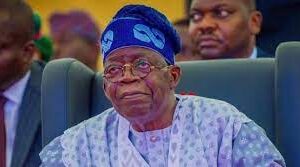The Independent Media and Policy Initiative (IMPI) has described the rate with which the naira is appreciating as a reflection of the bouquet of positive policies introduced by the Nigerian authorities and the Central Bank of Nigeria (CBN).
In a statement signed by its Chairman Niyi Akinsiju, Wednesday in Abuja, the policy think tank argued that the government and the CBN deserve commendation for policies that are addressing the supply and demand sides of the foreign exchange market.
It said: “To properly put this in perspective, we need to, as a matter of fact, from the outset, commend the dexterity of the CBN Governor, Olayemi Cardoso, in conceiving policies and deploying them to time and target as he virtually willed into existence a new monetary policy and exchange rate ecosystem by using policy actions to address both the supply and demand sides of the domestic foreign exchange market.
“One of the profound policies introduced to the market on 31st January, in the graduated steps to take charge of the market, was the administrative admonition to Nigeria’s Deposit Money Banks (DMB) to bring their Net Open Position (NOP) to prudential limit by 1st January, 2024. That was just less than a 24-hour notice to the banks.
“CBN’s NOP mandate to the banks implies that no bank holds 20 percent long position that is, hold more foreign currency assets than liabilities by more than 20 percent. The strategic objective of this mandate was to get the banks to start offloading into the open market, about $7billion they kept in long currency positions. That was a maneuver to address forex supply side concerns.
“On the same day, 31st January, when the CBN relayed the important NOP to banks, the apex financial sector regulatory body also issued the new International Money Transfer Organisations (IMTO) rules for remittances in Nigeria – the rules, which are actually a bouquet of auxiliary policies, are generally understood to mean occasions of recurring person-to-person (P2P) payments of relatively low value from persons living abroad to persons in their home country which now account for a sizeable portion of Nigeria’s foreign exchange in-flow”
The policy think tank also outlined the effect of the clearing of forex backlog on the naira.
“Perhaps, more instrumental to the resurgence of the Naira in the forex market is the clearing of the more than $7billion forex backlogs in form of outstanding CBN commitment on swap deals and due returns to foreign investors who needed to recover forex they imported into the country or those desiring to convert monies earned in local currency in the course of their businesses to forex.
“The inability of the CBN to fund the forex needs of these different economic agents constituted an albatross of sorts on the national economy and was one of the major reasons foreign investors stayed away from the country. With the clearing of the forex backlog, we can submit that the national economy is on the threshold of capacity optimization.
“The latest in this regard is the sale of dollar to BDCs at the rate of N1,251/$, an indication of the effective rate in the forex market, and for us, it signposts the possibility of increased value of the naira over the next few months,”it surmises.”
To arrive at its position, the policy group did a comparative analysis of recent monetary policy activities between Nigerian authorities and their Egyptian counterparts.
“Unlike Nigeria, Egypt recently adopted the free-float regime on the prompting of the International Monetary Fund (IMF) as part of measures to address economic dysfunctionalities in that country, especially as related to a foreign currency crisis that has more to do with liquidity than with pricing just as being experienced in Nigeria.
“Again unlike Nigeria, Egypt secured a $35billion investment, by way of sale of land assets, from the United Arab Emirates (UAE) and another $ 8 billion loan from the IMF. Soon after the adoption of the open market-determined forex rate, the Egyptian Pound fell beyond 50 pounds against the dollar in the last week of February. This was after being officially held at about 31 pounds to the dollar for almost a year while it reached more than twice that figure on the black market, leading to inflation figures ratcheting up to 35 percent in February from 30 percent in January. Compared to Nigeria where the inflation rate moved from 29.9 percent in January to 31.7 percent in February.
“In early March, Egypt’s Central Bank hiked policy rate by 600 basis points compared to the 400 basis points in Nigeria. The country also agreed to slow down infrastructure spending and allowed the Egyptian Pound’s value to plummet, in exchange for a $5billion expansion of its preexisting loan package from the IMF to $8billion.
“There was no such commitment by Nigeria because its situation is self-determined and organically oriented. The influx of cash, combined with the IMF loan into Egypt has reportedly rectified the government’s foreign currency shortage, at least for now. Comparatively, Nigeria’s government and the CBN do not have the benefits of the kind of huge fiscal intervention made by the UAE and the debt support from the IMF even though the two countries suffer the same economic fate.
“Yet, while the situation report from Egypt signposts an economy at its tether end, the Nigerian economy, evaluated by its foreign exchange outlooks currently, may have turned the corner with an attribution of certainty, a major consideration for foreign investors inflow into the country,”it added.”
IMPI is of the view that the fiscal and monetary policy authorities in Nigeria have found a way of setting the economy on a path of resilience.




